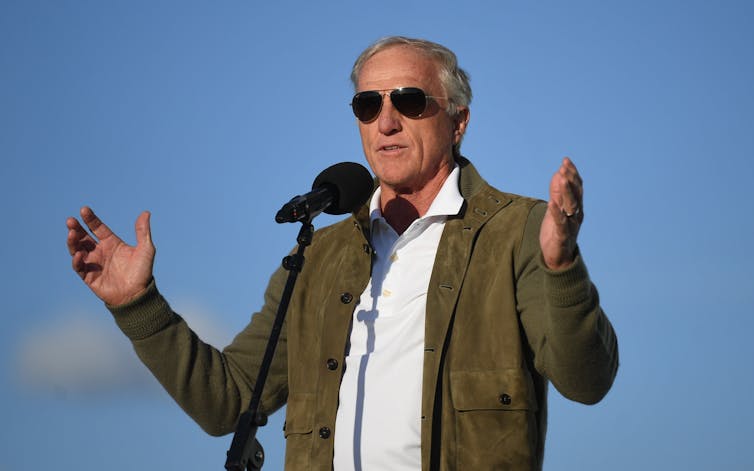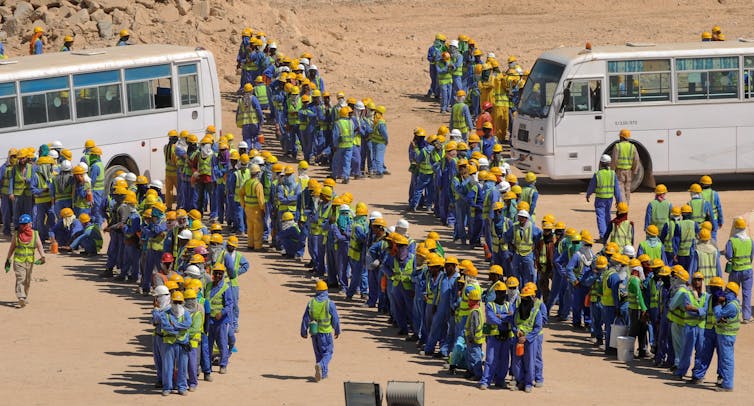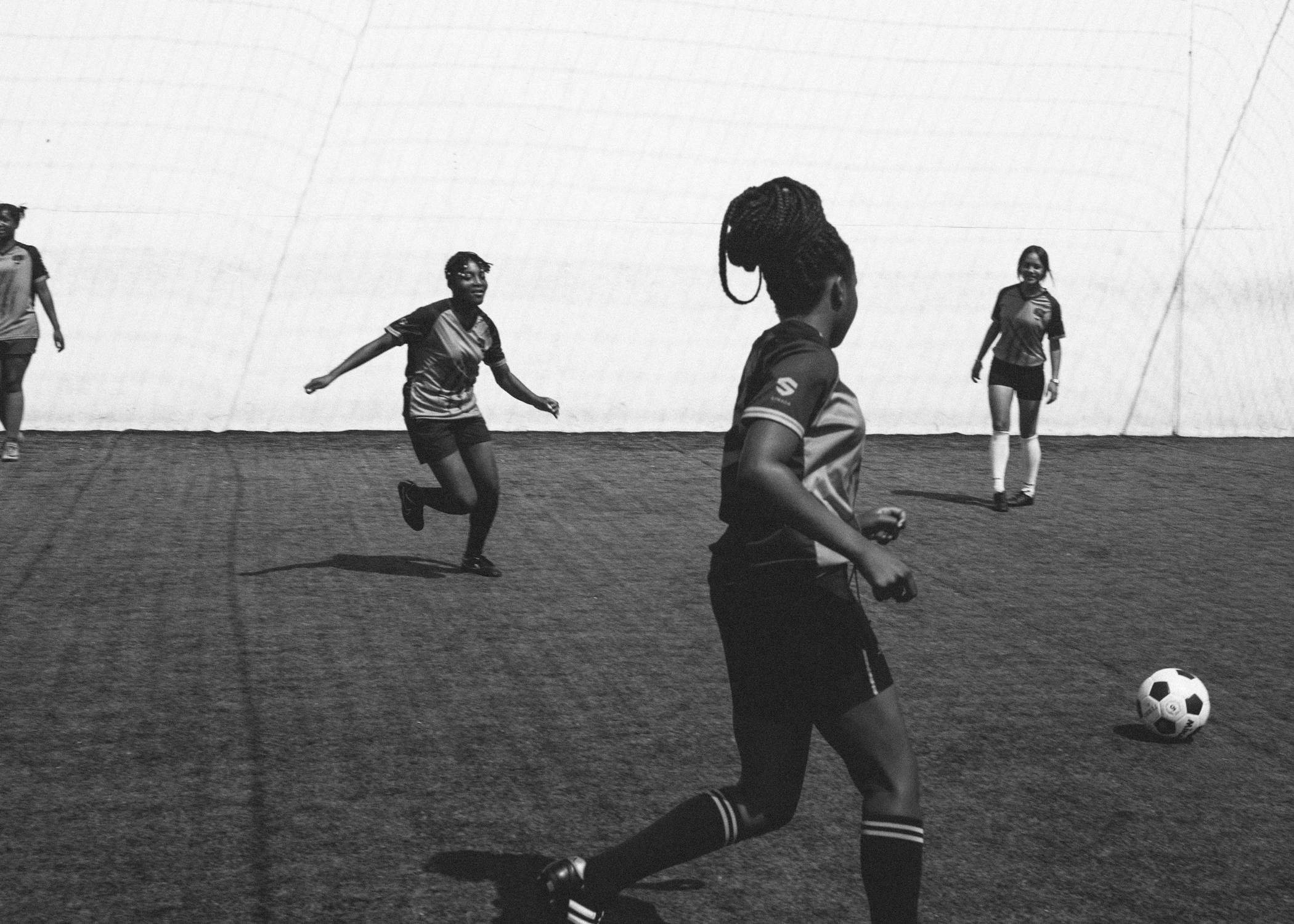[ad_1]
Organisers of Wimbledon, the principal draw of which begins on June 27, have located by themselves in a quandary around their controversial choice to ban Russian and Belarusian players in protest about the invasion of Ukraine.
The banned players involve present men’s earth number 1 Daniil Medvedev, quantity 8 Andrey Rublev, and women’s globe amount 6 Aryna Sabalenka.
Both the Association of Tennis Specialists (ATP) and Women’s Tennis Affiliation (WTA) penalised Wimbledon for this ban by stripping the match of its position details.
Simply because a single of the world’s most prestigious tennis tournaments has been relegated to simply a higher-profile exhibition party, a expanding amount of players have pulled out of the event, which include Naomi Osaka and Eugenie Bouchard (this displays how a boycotter party can simultaneously be boycotted by members).
These varieties of boycotts take place frequently in higher-profile activity as occasion organisers and individuals use its world-wide get to to emphasize human rights violations.
But boycott actions and counter-steps – such as individuals at Wimbledon – often do additional to harm individual athletes who occur to be nationals of these countries instead than to the condemned regime or the occasion sponsors.
Go through more:
Is banning Russian tennis gamers from Wimbledon the suitable connect with?
Activity and human rights
Australian previous golfer Greg Norman sparked earth-extensive condemnation with his statement that “we’ve all built mistakes” when talking about the Saudi-Arabian-backed killing of journalist Jamal Khashoggi.
It did not go unnoticed that Norman is also CEO of the Saudi-backed LIV Golfing Investments, which introduced a PGA-breakaway golf tour for the super-abundant.
Norman’s dismissal of a murder and the horrified world-wide response to his comment demonstrate the electricity of sport to highlight and at the same time overlook human legal rights violations.

Neil Hall/EPA/AAP
Nations accused of violating these legal rights have located strategic, proactive strategies to counter the punitive, reactive, and short-time period strategy of economic boycotts. And sport performs an crucial section in that, this sort of as the example of Qatar employing the FIFA Environment Cup as a affirmation of their trustworthiness and skill to host a globally significant event.
These investments in “sportswashing” – employing activity as a skinny veneer to current a sanitised, friendlier model of a political routine or an organisation – are significant business. The world impact of activity can develop into a auto for soft diplomacy and pursuing legitimacy.
November’s FIFA Entire world Cup in Qatar remains a matter of a 10 years-long discussion questioning how FIFA could award the world’s biggest sporting party to a place with a dubious human legal rights file.
This has now only worsened with proof of mass exploitation of the migrant personnel constructing the Cup’s stadiums.

STR/EAP/AP
Although arguably fewer intense in nature, Australia is not absolved of human rights deficiencies in sport.
Why, for instance, do Indigenous Australians remain below-represented at the elite and community level in most Aussie sports activities? Why are Australian females missing as leaders in coaching? Why is there at this time only just one brazenly gay male expert soccer player in Australia and no openly homosexual male AFL gamers? Why have so many customers of Australia’s gymnastics and swim groups noted abuse and toxic cultures that started out when they had been kids?
We should really consider to coronary heart that even the practice of sport is a common human correct under the Olympic and European Athletics Charters, and other internationally ratified declarations and treaties.
Even so, most nations do not totally recognise and employ this idea in coverage and exercise, with access to sport participation normally marred with complexities and hypocrisy.
Read through additional:
The Olympics have often been a platform for protest. Banning hand gestures and kneeling ignores their background
Has Wimbledon’s boycott labored?
Wimbledon organisers are clearly striving to make a place: invading the sovereign territory of another nation is unacceptable.
However even while the event can simply call the world’s consideration to its stand, has banning players from invading nations proven to be an powerful indicates to defend and shield human rights?
The remedy would be a resounding “no”.
What the ban has accomplished is to sign that the Wimbledon organisers acquire a placement versus the Russian invasion of Ukraine. But getting a stand does not defend nor shield.
In this circumstance, it hurts individuals who cannot be blamed for the war (the banned tennis gamers), and the unintended outcomes (no ranking factors) harm the broader group of expert tennis gamers.
Study extra:
French Open: knowing why Russian and Belarusian tennis players are competing in spite of Wimbledon ban
Though activity can indeed be a important platform to promote human rights, we ought to also recognise it doesn’t take a great deal for activity to turn out to be unique, divisive and controversial.
Crucially, leveraging activity to progress human legal rights demands that human legal rights safeguarding by Australia, Russia or Qatar is calculated by the exact yardstick, recognising that a great deal function will have to be finished to be certain each and every country’s possess sporting atmosphere is inclusive and absolutely free of discrimination.
In carrying out that, we can certainly recognise activity as the common human proper that it is, and it can continue to be correct to its core aim of celebrating human potential and accomplishment.
[ad_2]
Resource connection







